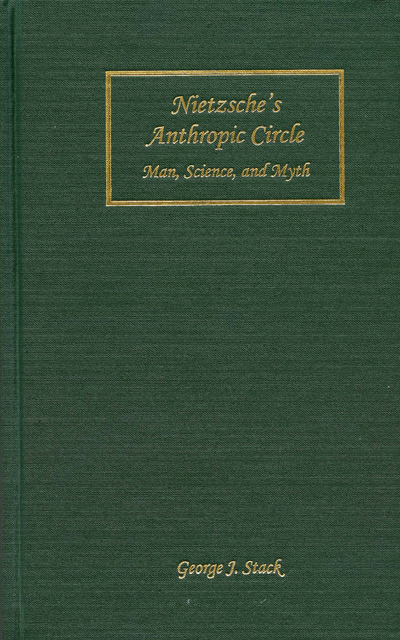Book contents
- Frontmatter
- Dedication
- Contents
- Preface
- Editions and Abbreviations
- 1 Anthropomorphic Projection
- 2 Agnosticism
- 3 A Dynamic Theory of Nature
- 4 Perspectivalism: Knowledge/Interpretation
- 5 Fictionalism in Science
- 6 The Structuralist Perspective
- 7 Evolutionary Epistemology
- 8 Tragic Knowledge and a Will-to-Power Psychology
- 9 The Cosmic Will to Power as Fable
- Notes
- Selected Bibliography
- Index
7 - Evolutionary Epistemology
Published online by Cambridge University Press: 23 March 2023
- Frontmatter
- Dedication
- Contents
- Preface
- Editions and Abbreviations
- 1 Anthropomorphic Projection
- 2 Agnosticism
- 3 A Dynamic Theory of Nature
- 4 Perspectivalism: Knowledge/Interpretation
- 5 Fictionalism in Science
- 6 The Structuralist Perspective
- 7 Evolutionary Epistemology
- 8 Tragic Knowledge and a Will-to-Power Psychology
- 9 The Cosmic Will to Power as Fable
- Notes
- Selected Bibliography
- Index
Summary
Life is the condition of knowing.
Nietzsche, NachlassA consistent theme in Nietzsche's thought is that all things have developed or evolved. He strongly defends the notion that our modes of perception, our concepts, and our language have developed over long periods of time and are subject to evolutionary change. In this sense, he presents a prototypical version of a naturalized epistemology and employs it as one of the weapons in his armamentarium in his critical analysis of knowledge.
Most of the elements incorporated in recent forms of evolutionary epistemology can be found in Nietzsche's multidimensional analyses and speculations concerning the development over time of ways of perceiving and thinking that eventually become sedimented and dominate historical periods. From his earliest writings to his last thought-experiments he disclosed the anthropomorphic nature of truth, the utilitarian function of perception, cognition, conceptual schemata, and language, intimately relating them to their survival value.
In the Essays of Emerson Nietzsche first found a general conception of evolution that linked man's “natural history” to the “ferocities of nature” and pointed to the presence in man of primal traits and tendencies. Later, in the writings of Schopenhauer, he found a foreshadowing of evolutionary thought and the view that the intellect is a tool of more basic drives, an instrument comparable to the aggressive and defensive “weapons” of animals. Moreover, in Schopenhauer's “On Philosophy and Science of Nature,” he would have found a surprisingly detailed evolutionary theory. Shortly after his discovery of Schopenhauer, Nietzsche became familiar with Lange's History of Materialism and no doubt absorbed his sketch of Darwin's theory of evolution by means of natural selection. In fact, in his notes from the mid-1860s he linked Empedocles’ insight that extant organic beings were the result of random, natural experiments over time and not design to “the Darwinian theory.”
In “On Truth and Lying in a Non-Moral Sense,” Nietzsche alluded to the evolutionary basis of perception and concept-formation and adopted Schopenhauer's characterization of the intellect as a tool used in the struggle for survival. In addition, he argued that we value truth, intellect, and knowledge not as intrinsic goods, but because of their life-preserving function. Our knowledge is tantamount to “anthropomorphic truth” or the practical truth that is in the service of life.
- Type
- Chapter
- Information
- Nietzsche's Anthropic CircleMan, Science, and Myth, pp. 146 - 161Publisher: Boydell & BrewerPrint publication year: 2005

